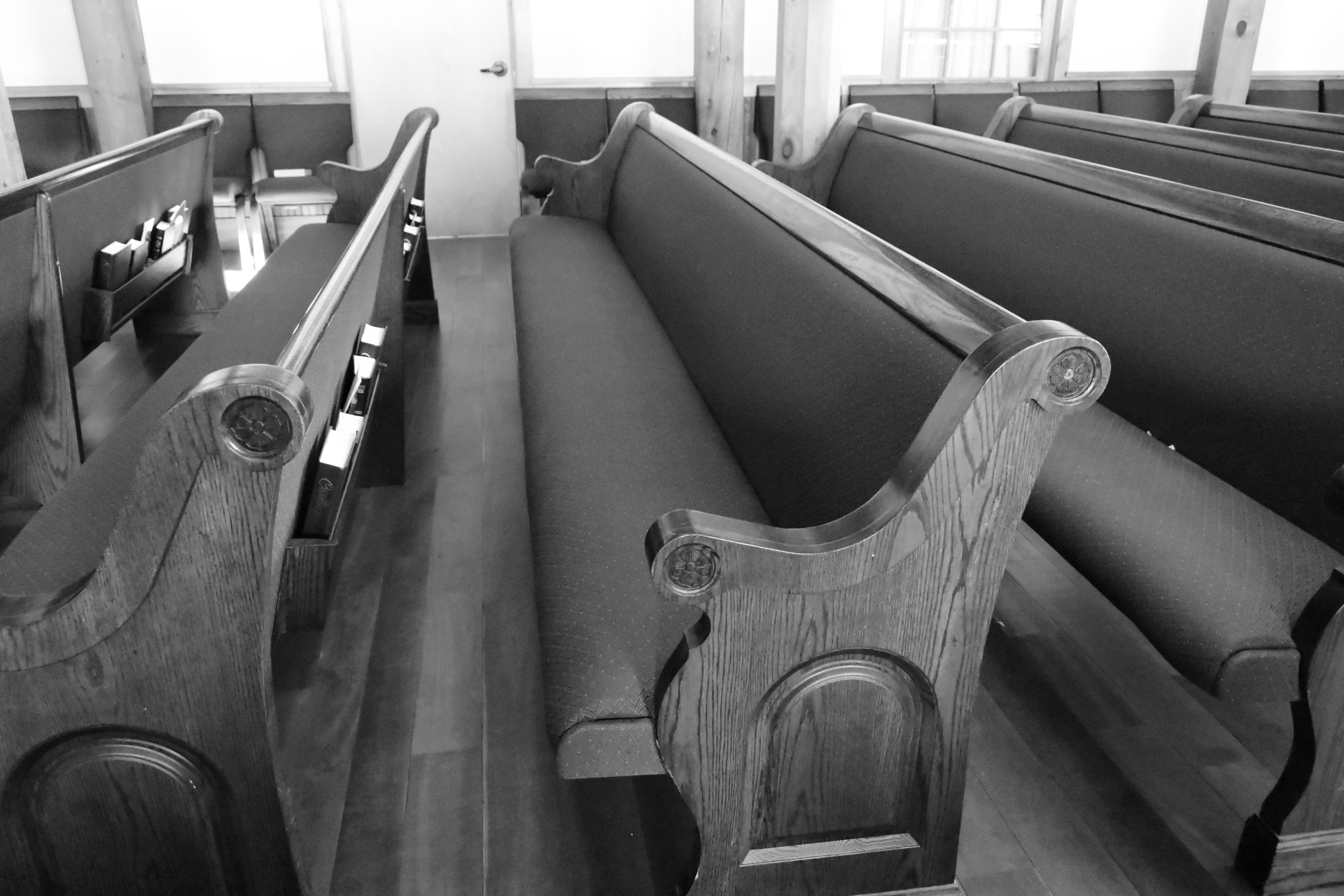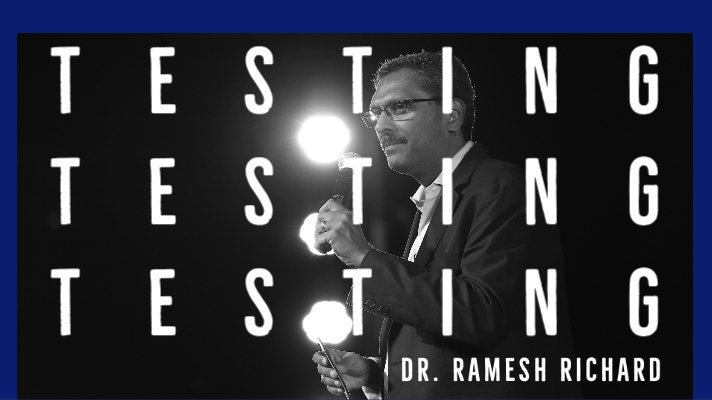
5 Hard Truths About Healthy Church Growth
December 13, 2018
5 Keys to Making Sure Your Christmas Break Doesn’t Break You Or Your Family (A Post for Driven Leaders
December 25, 2018Understanding the Trinity

In this episode, Dr. Darrell Bock and Dr. Fred Sanders discuss the Trinity, focusing on how a biblical understanding of this doctrine affects the Christian life in a holistic manner.
Transcript below:
Darrell Bock: Welcome to The Table where we discuss issues of God and culture. I’m Darrell Bock, Executive Director for Cultural Engagement at the Hendricks Center at Dallas Theological Seminary. And I my guest today is Fred Sanders, who is professor of theology at the Torrey Honors – is it the Torrey Honors Institute within Biola University? Do I have that right?Fred SandersThat’s correct.
Darrell Bock: Well and Fred is gonna help us negotiate our way through a topic that’s probably on the one hand very central to Christianity and oftentimes not sufficiently appreciated within the faith and that is the topic of the trinity. So, Fred, the first question we almost always ask on these podcasts is how did you get into this gig? What – where are you from, by the way, in terms of where you grew up?
Fred Sanders: I grew up in Kentucky.Darrell BockYou grew up in Kentucky so what’s a good Kentucky boy like you doing out in California talking about a topic as popular as the trinity?
Fred Sanders: [Laughs] Well, I had a Christian upbringing but I actually got saved in high school. And when I started reading the Bible for myself, I actually have the great advantage of having discovered the trinity there kind of reading Ephesians 1 as hard as I could. And I thought if this salvation is one thing, it must be worked by one God. But this long sentence here in Ephesians seems to be saying that the Father chose us and we’re adopted in the Son and the Spirit seals us so it sort of dawned on me and I made it up myself. And I thought I might have to start a cult with my new doctrine of God, but then I read around a little bit in Christian history and realized oh, this is actually normal Christian doctrine.
Darrell Bock: And so I take it drew your interest. Did you – have you been working on this through your seminary preparation, etcetera, or is this something you picked up after you went to seminary and started teaching?
Fred Sanders: No, this was late in seminary. I went to Asbury Theological Seminary in Kentucky, and late in that process I sort of really started working on the doctrine of the trinity and have never looked back.
Darrell Bock: Okay so what did you work on at Asbury?Fred SandersI got an MDiv over there and by that time I knew I wanted to teach theology so, yeah, pretty much the trinity. You know, you have to start specializing to go forward in scholarship and I sort of resented that. I didn’t want to specialize. I saw the need for division of labor. I knew you couldn’t read everything, but I kind of wanted to try. [Laughs] So I picked the doctrine of the trinity because it’s such a large doctrine. You have to be a little bit good at every element of the theological disciplines in order to really handle the trinity well.
Darrell Bock: And I can tell by looking at the background that we’re looking at in your office that you do read in your spare time. [Laughs]
Fred Sanders: [Laughs] Yeah.
Darrell Bock: So let’s talk a little bit about the trinity. You walk into an audience and someone says to you, “Tell me the most basic things I ought to know about the trinity and what – and a beginning step on why it’s important” and what would you briefly tell them?Fred SandersWell, my No. 1 thing that I always do is connect the trinity to the gospel, not in the sense of saying you have to believe in the trinity in order to be hearing the gospel, but to explain the gospel in such a way that it just naturally makes sense that the Father, the Son and the Holy Spirit are the one God behind the gospel. So I would start with all kinds of biblical sentences like the Father sent the Son and the Holy Spirit.
Darrell Bock: Yeah and I actually think this is a very under-appreciated part of the gospel story itself. I happen to be teaching today in Acts 2 in a class I do on Acts, and there’s no more Trinitarian chapter about the nature of the gospel. The plan is the Father’s. It’s executed through the Son, who mediates the blessing. And the one that is mediated is the gift to those who receive it is the Spirit. So you couldn’t be more Trinitarian than that.
Fred Sanders: And I try to teach it that way in a way that people feel the impact of it and are satisfied in a certain sense to say if you were to ask what is God in himself like if you try to think of this triune structure of God and ask what can I compare that to? What’s it like? I really hope people don’t mainly go for interesting analogies or distracting comparisons but they say you know what the eternal God is like? He’s like the Father sending the Son and the Holy Spirit. In other words, the trinity is like the gospel.
Darrell Bock: Okay so you kind of got at another question that I have, which is we spend a lot of time trying to sort of for lack of – I’m gonna use the technical term here – the ontology of the godhead and trying to figure out the relationship between the persons. And certainly that was a major discussion and even preoccupation of theology in the early centuries of the church. But part of what I’m sensing from the stuff I’ve read that you’ve written is an emphasis on the connections both within the personhood or the Trinitarian character of God as well as the connections to us, almost the relational dimensions of how that – the reality of the trinity impacts us as people and the way in which we interact with God. Is that a fair distinction to be making or am I overdrawing it?
Fred Sanders: No, there’s something to that. What I’m always trying to get behind and make progress on is the idea that people have that the trinity is some sort of – the doctrine of the trinity is some sort of strange factual information concerning God that he at some part leaned over the ramparts of heaven and told to us verbally. And then if we’re good at receiving revelation and believing it, we would just write it down and say okay, duly noted. Apparently, God is Father, Son and Holy Spirit. And then all sorts of questions come up. What’s that got to do with me? What’s that like? All the sort of questions people ask that they can never be quite be satisfied with any answer to. I always want to emphasize that our knowledge of God’s triunity is bundled with the fulfillment of salvation. The God the Father promised to send the son and the Holy Spirit. And when he did, that’s when the revelation of the trinity shined forth so clearly.
Darrell Bock: You make two other points in writing about this that I think are important to lead off with. One is the association or the idea of the trinity with the idea of mystery and the idea that it’s something that almost had to be revealed in order to be perceived. Again, fair characterizations of the things that you’re trying to say about the trinity?Fred SandersYeah and I think with mystery everyone is used to talking about the doctrine of the trinity as a mystery, even a revealed mystery. God made it known but we can’t utterly comprehend it or get our minds around it. The main thing I do with that is look at the biblical word “mystery”. And in biblical usage, especially in Daniel and in Paul, it has to do with something that used to be kept secret. It was always true but it was once kept secret and now in this time of fulfillment has now been made known, so a mystery in the Bible has a chronological structure to it. And even when it’s been unveiled, it’s got this abiding mysteriousness about it even when it’s an open secret.
Darrell Bock: And so I mean Revelation is about the unveiling of something so that certainly fits the background of the terminology and I think many people wrestle with the question. And in fact if you go into a world religions context and you talk to a Jewish person or a Muslim, they’ll say, “Well, you Christians, you really believe in three gods” so how do you unpack that kind of an issue and that kind of a problem?
Fred Sanders: Yeah, well, it’s important to step up and say no, we don’t believe in three gods. Trinitarianism intends to be a version of monotheism. Now I understand if other monotheists think it doesn’t count as monotheistic. But it’s important to point out that we’re not trying to set up some kind of compromise between monotheism and polytheism. We don’t think – some people say there’s one God. Some people say there’s lots. We split the difference and say there’s three. No, trinitarianism is a concrete form of monotheism. It’s biblical monotheism that takes account of Christ and the Spirit.
Transcript in full here.


